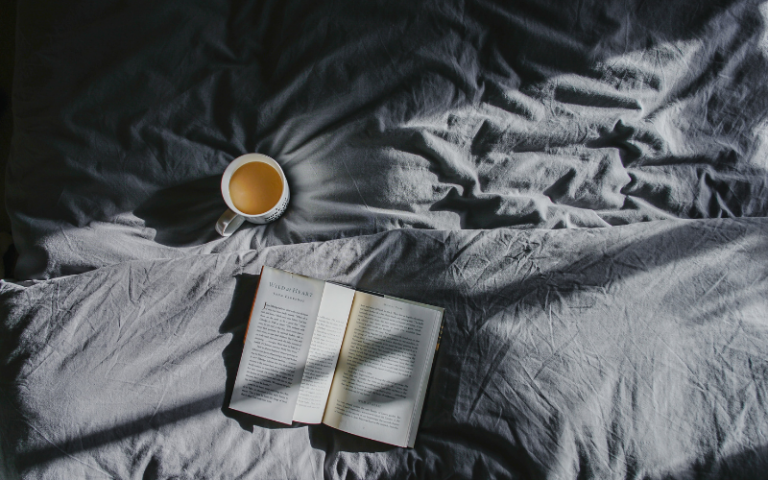Creating healthy habits: sleep
23 November 2020
Ensuring that we get high quality sleep is essential for looking after mental and physical health and wellbeing. Find out more about why sleep is so important, and how to develop your own sleep routine.

Over the coming weeks, we’re publishing articles that will help you to develop healthy habits which help you take care of your mental wellbeing. Today, we’re looking at sleep.
Why is sleep important?
Sleep is vital for your mental and physical health. Sleeping supports the brain to function effectively, aids your physical health, and ensures that you are able to function well, being able to think, react, learn and work effectively. So while it might be tempting to sleep less to get more work done, this can actually be more damaging to your productivity.
Sleeping at regular times is important to helping the brain and body get used to sleep. Be realistic, and work around what rhythm your body and sleep pattern works: night owls and early birds are both fine, but what’s most important is that you have a regular schedule that works best for you. This might also change throughout the year as the daylight hours change, but you should be aiming for 7-8 hours of sleep a night.
Creating a sleep routine
Your routine doesn’t have to be strict, but having a rough time frame in which you will go to sleep and wake up is essential to creating positive sleep habits. This will help you wind down, relax and ensure you get good quality sleep.
In the evening, it might be helpful to have a timeframe within which you will start winding down, relaxing and getting ready for bed. If you have a lot of thoughts swirling around your head, perhaps things you need to do tomorrow, try and write them down. If you don’t quite feel tired, consider having a shower, reading a book or doing some gentle exercises, such as stretching.
In the morning, be realistic about when you are going to wake up. Even the best intentions of getting up at 6am are wasted if you spend the following hour snoozing your alarm – all you will achieve is poorer sleep. Instead, work backwards from when you want to begin studying or leave the house, and figure out how much time you’ll need, including time to spend waking up, since, especially as winter sets in, it can get harder and harder to leave your warm and cosy bed.
Further reading
It can be hard to create this routine for yourself, and it might take some trial and error. The NHS has more good recommendations on how to get to sleep, and some tips for dealing with winter tiredness. For some people, sleep is much more complex than just making sure you get 8 hours of sleep, so if this is the case, remember that you can get help from your GP (General Practitioner). For more information about how to register with a doctor, read our page here.
Read about other resources and organisations for support and advice on sleep.
 Close
Close

